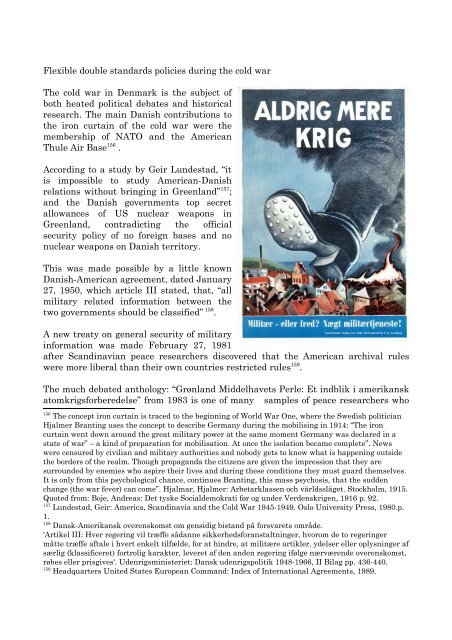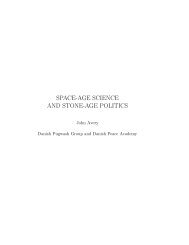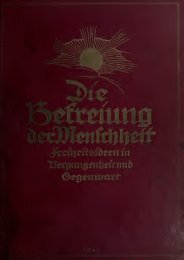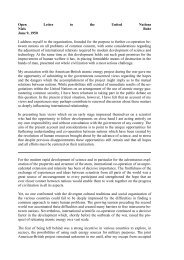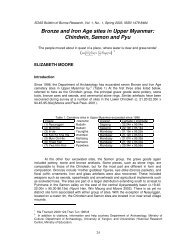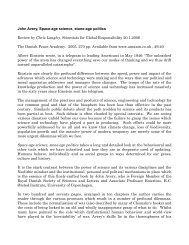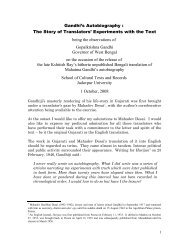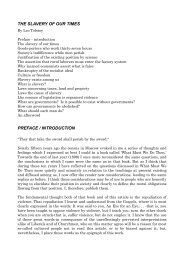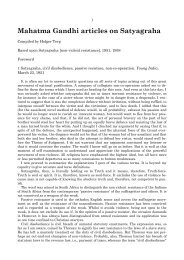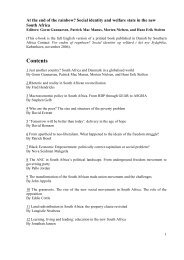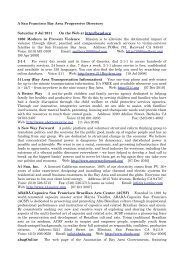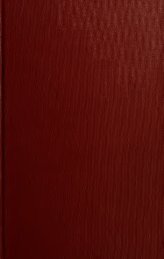Terp, Holger: Danish Peace History - Det danske Fredsakademi
Terp, Holger: Danish Peace History - Det danske Fredsakademi
Terp, Holger: Danish Peace History - Det danske Fredsakademi
Create successful ePaper yourself
Turn your PDF publications into a flip-book with our unique Google optimized e-Paper software.
Flexible double standards policies during the cold war<br />
The cold war in Denmark is the subject of<br />
both heated political debates and historical<br />
research. The main <strong>Danish</strong> contributions to<br />
the iron curtain of the cold war were the<br />
membership of NATO and the American<br />
Thule Air Base 156 .<br />
According to a study by Geir Lundestad, “it<br />
is impossible to study American-<strong>Danish</strong><br />
relations without bringing in Greenland” 157 ;<br />
and the <strong>Danish</strong> governments top secret<br />
allowances of US nuclear weapons in<br />
Greenland, contradicting the official<br />
security policy of no foreign bases and no<br />
nuclear weapons on <strong>Danish</strong> territory.<br />
This was made possible by a little known<br />
<strong>Danish</strong>-American agreement, dated January<br />
27, 1950, which article III stated, that, “all<br />
military related information between the<br />
two governments should be classified” 158 .<br />
A new treaty on general security of military<br />
information was made February 27, 1981<br />
after Scandinavian peace researchers discovered that the American archival rules<br />
were more liberal than their own countries restricted rules 159 .<br />
The much debated anthology: “Grønland Middelhavets Perle: Et indblik i amerikansk<br />
atomkrigsforberedelse” from 1983 is one of many samples of peace researchers who<br />
156<br />
The concept iron curtain is traced to the beginning of World War One, where the Swedish politician<br />
Hjalmer Branting uses the concept to describe Germany during the mobilising in 1914: “The iron<br />
curtain went down around the great military power at the same moment Germany was declared in a<br />
state of war” – a kind of preparation for mobilisation. At once the isolation became complete”. News<br />
were censured by civilian and military authorities and nobody gets to know what is happening outside<br />
the borders of the realm. Though propaganda the citizens are given the impression that they are<br />
surrounded by enemies who aspire their lives and during these conditions they must guard themselves.<br />
It is only from this psychological chance, continues Branting, this mass psychosis, that the sudden<br />
change (the war fever) can come”. Hjalmar, Hjalmer: Arbetarklassen och världssläget. Stockholm, 1915.<br />
Quoted from: Boje, Andreas: <strong>Det</strong> tyske Socialdemokrati før og under Verdenskrigen, 1916 p. 92.<br />
157<br />
Lundestad, Geir: America, Scandinavia and the Cold War 1945-1949. Oslo University Press, 1980.p.<br />
1.<br />
158<br />
Dansk-Amerikansk overenskomst om gensidig bistand på forsvarets område.<br />
'Artikel III: Hver regering vil træffe sådanne sikkerhedsforanstaltninger, hvorom de to regeringer<br />
måtte træffe aftale i hvert enkelt tilfælde, for at hindre, at militære artikler, ydelser eller oplysninger af<br />
særlig (klassificeret) fortrolig karakter, leveret af den anden regering ifølge nærværende overenskomst,<br />
røbes eller prisgives'. Udenrigsministeriet: Dansk udenrigspolitik 1948-1966, II Bilag pp. 436-440.<br />
159<br />
Headquarters United States European Command: Index of International Agreements, 1989.


